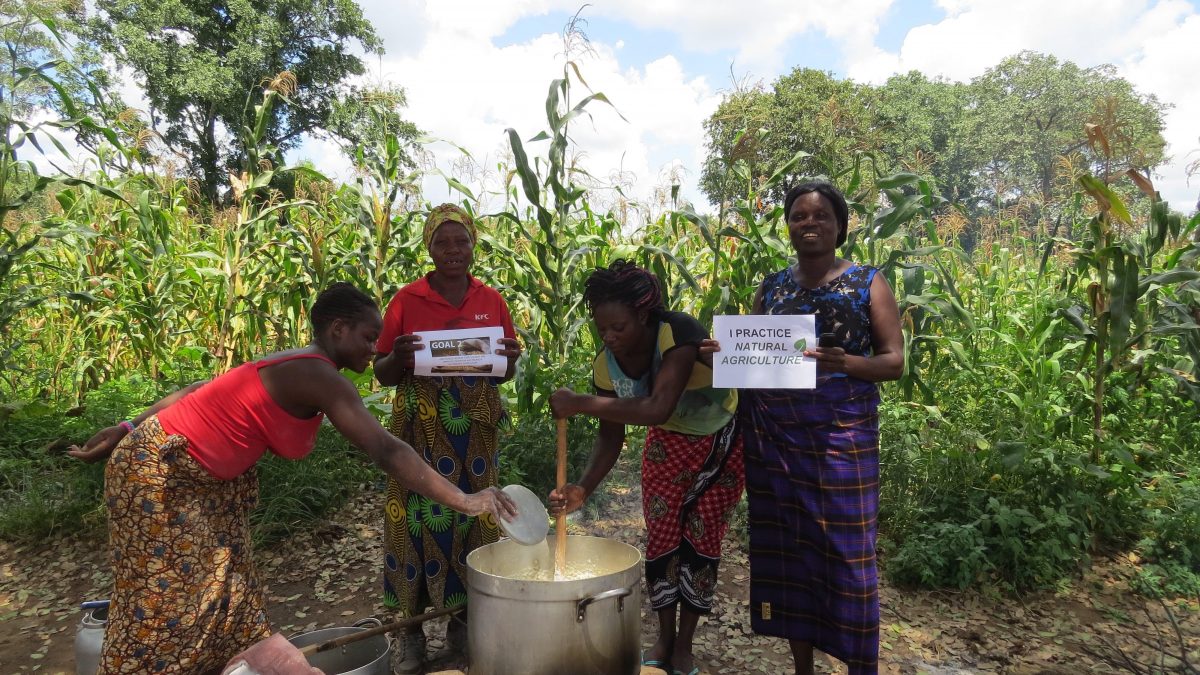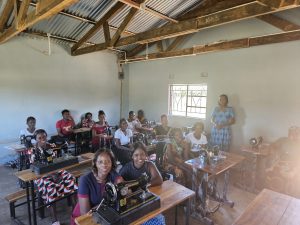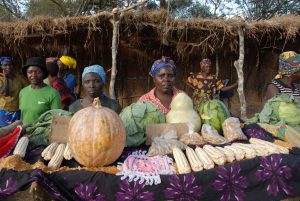
As severe drought in Zambia continues to threaten crop health and food security across the country, Shumei International has been working closely with our partners to support Natural Agriculture farmers on the ground. Barbara Hachipuka Banda, our project director and CEO of the Natural Agriculture Development Program Zambia (NADPZ), has shared that although summer rainfall has offered some relief, it arrives too late to save the country’s maize supply, a Zambian staple crop.
Erratic rainfall has continued to complicate farming efforts, and national reliance on hydropower has led to significant power cuts and water shortages across the country. President Hakainde Hichilema has declared the situation a national disaster, and the country’s Minister of Green Economy and Environment, Collins Nzovu, has attributed the crisis to the worsening effects of climate change–and the lack of climate resilience in the traditional Zambian agriculture sector.
Despite the climate emergency, there are notable pockets of progress to be found within the Shumei Natural Agriculture project. At the new project site in Chipata, located in the eastern province, rainfall allowed Natural Agriculture farmers to save seeds for the upcoming planting season. Seed saving, in addition to continuous cropping, enables farmers to strengthen the resilience of their crops into the future. Other Natural Agriculture farmers in the area have diversified their crops, growing vegetables and legumes in addition to maize to ensure their food supply is protected.
Similarly, the school and training center in Pemba continues to share Natural Agriculture approaches with students, equipping them to produce their own food in harsh growing conditions. Amid a nationwide drought, students have learned how to use boreholes to ensure a reliable water supply for their crops and have learned the value of crop diversification. The classrooms at Pemba also serve as spaces where women farmers can develop new skills, including sewing school uniforms. Adult training programs on-site offer courses in business, land management, and production, and are helping women farmers to become more successful entrepreneurs. The technical center has seen an increase in enrollment–demonstrating young people’s desire to learn climate resilient farming techniques as well as related skills.

The Pemba training center offers programs such as sewing workshops while also teaching students how to grow their own food through Natural Agriculture.
Our work in Zambia has highlighted that small-scale, women farmers are instrumental in promoting and implementing climate resilient agriculture in their communities. Earlier this year, the Food and Agriculture Organization of the United Nations (FAO) announced their intent to celebrate 2026 as the International Year of the Woman Farmer–and highlighting the role that rural women play in ensuring the economic survival of their families. Shumei is proud of the initiatives implemented by the Natural Agriculture Development Program Zambia and partnership with the Mbabala Women Farmers’ Cooperative with more than 6000 rural small-scale farmers–many of them women–in southern Zambia.
The climate challenges faced by Zambia are ongoing, and similar crises will continue to occur across the globe. As we continue to build climate resilience and support communities through Natural Agriculture and environmental stewardship, we are reminded of the stories of hope from projects in Chipata and Pemba–-and look forward to celebrating the International Year of the Woman Farmer in 2026.
If you are interested in learning more or supporting the Natural Agriculture projects in Zambia, please reach out to chaionnb@shumei-international.org.


